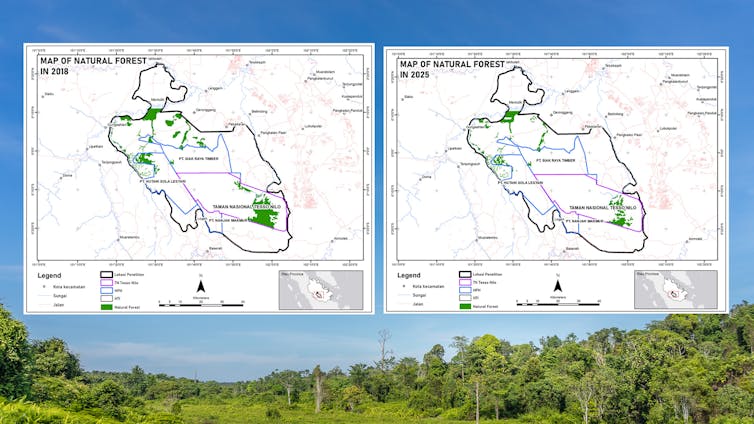Colgate is combating Smile Shame to address concerns of 94 per cent of people in Asia-Pacific who wish they could smile freely
- Written by Colgate-Palmolive Company
Colgate first commissioned an independent study across Asia-Pacific to gain insights and inform initiatives to propel this movement to eradicate Smile Shame for society to fully gain the benefits of smiling.
The Colgate Smile Study 2023 found that a resounding 94 per cent of respondents across Asia-Pacific would like the ability to smile more freely. Jointly topping the list are Philippines, Taiwan and Thailand where an overwhelming 98 per cent indicated their desire to smile without reservations. The inaugural study, conducted by research company Pureprofile in August – September 2023, surveyed more than 4,000 individuals aged 16 to 55 years old across eight Asia-Pacific markets namely Singapore, Malaysia, Hong Kong, Taiwan, Philippines, Australia, Thailand and India.
This World Smile Day®, Colgate is celebrating all smiles by adapting its iconic logo to represent the many different and beautiful smiles that surround us daily. Colgate is also collaborating with influencers across the region to further champion this cause. This includes Ethan Kuan (關韶文[2]) from Taiwan and Xixi Lim[3] from Singapore who have personally experienced Smile Shame but are now embracing their own unique smiles.
Additionally, as part of #FreeYourSmile, Colgate is introducing a Smile Generator AI tool at colgate.com/yourcolgatesmile[4], encouraging everyone to create their personalised Colgate smile on TikTok and Instagram, and spread the message to celebrate all smiles. Digital Out of Home content will further encourage others to join the movement with activities being organised in local markets to further promote this important message.
Yves Briantais, Executive Vice President, Marketing Asia-Pacific, Colgate-Palmolive said, "Smile Shame is especially prevalent in Asia-Pacific and this must change. At Colgate, we are on a mission to free people from the constraints of Smile Shame to truly embrace their own unique smiles. We believe brands have the power to challenge unrealistic beauty standards and promote authenticity. This World Smile Day, Colgate is leading the charge by celebrating all smiles."
Approximately one in two people across the region believe that brands should have a role to play in tackling the issue of Smile Shame, according to the Colgate Smile Study 2023.
Advocating for the Benefits of Smiling
While people across Asia-Pacific indicate that they feel relaxed when they smile freely, the majority of respondents in the Philippines express that smiling freely bolsters their sense of confidence.
Scientific research supports the idea that smiling positively impacts mental health, acting as natural anti-depressants and pain relievers[1]. Smiling is also good for the heart, aiding in lowering blood pressure and expediting recovery after stressful events[2].
A key health benefit of smiling includes strengthening the immune system by increasing white blood cell counts, providing protection against infections[3]. Socially, smiling is a powerful tool to foster bonds and building trust by making a lasting positive impression on others[4].
Standing against Smile Shame
Smile Shame may not be a familiar term to many. It encapsulates the feelings of embarrassment, self-consciousness, or insecurity regarding one's smile.
The Colgate Smile Study 2023 revealed that three in five individuals across Asia-Pacific can relate to the concept of Smile Shame, with two in five having personally experienced it. Smile Shame has been experienced most in Thailand, with 59 per cent indicating that they have had such encounters. Key reasons cited across Asia-Pacific for worrying about their smiles include concerns about comments from others, whether it be from family, friends, or strangers, as well as personal feelings of self-doubt.
Australia (85 per cent) and Hong Kong (88 per cent) stand out for scoring the lowest when asked about whether they feel like they have the freedom to smile whenever they like. The other markets averaged 94.5 per cent in comparison.
Celebrating the Diversity of Smiles
Smile Shame is associated with different attributes across markets, reflecting diverse perceptions of what makes a beautiful smile. Attributes such as the colour of teeth, the structure of teeth, and the impact of smiles on facial appearance vary in importance.
The Colgate Smile Study 2023 also revealed that concerns about external perceptions of their smiles and fear of judgment are significant factors inhibiting individuals from freely expressing their genuine and spontaneous smiles.
#FreeYourSmile is the first step in Colgate's mission to celebrate all smiles and combat Smile Shame, with more initiatives planned. This movement represents Colgate's goal to inspire individuals to express themselves freely and proudly, regardless of perceived imperfections.
For more information, please visit colgate.com/yourcolgatesmile[5]
Hashtag: #Colgate
The issuer is solely responsible for the content of this announcement.
References
- ^ Media OutReach (www.media-outreach.com)
- ^ 關韶文 (www.instagram.com)
- ^ Xixi Lim (www.instagram.com)
- ^ colgate.com/yourcolgatesmile (www.yourcolgatesmile.com)
- ^ colgate.com/yourcolgatesmile (www.yourcolgatesmile.com)
Authors: Colgate-Palmolive Company
Read more https://www.media-outreach.com/news/singapore/2023/10/06/251065/





